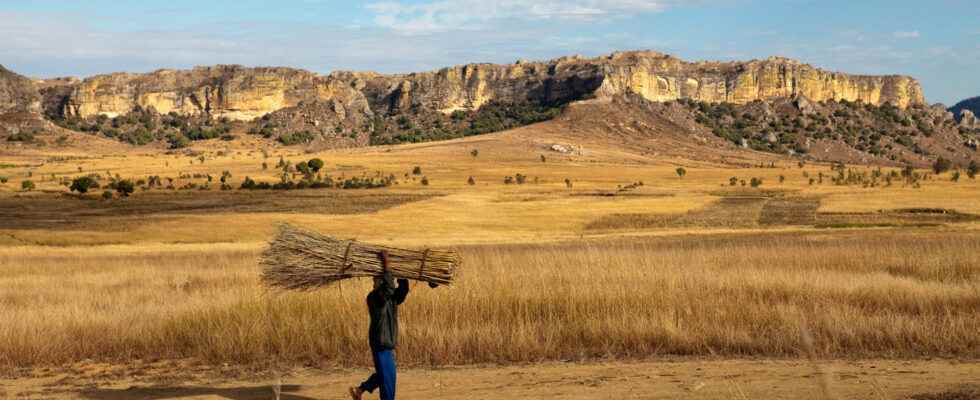Charles Guyard, edited by Ophelie Artaud
This week, France hosted the International Congress of Horticulturists, which included scientists from Africa. The opportunity for France, affected by a historic drought for several weeks, to take an interest in the methods used on this continent to continue to cultivate despite climate change.
While a historic drought affects the country, France hosted this week the International Congress of Horticulturists, the largest world event devoted to specialized plants, from ornament to fruits and vegetables through seeds. Nearly 2,000 scientists gathered in Angers discussed water management in particular. The opportunity to take an interest in Africa and the way in which this continent adapts its agricultural model to climatic upheavals. France, and more generally the West, may have lessons to learn from this.
“In Africa, if we were able to anticipate all this, it’s because we stuck to traditional cultures”
“Africa has been experiencing these climatic episodes for years.” These climatic episodes are the extreme heat and drought with which the continent must deal. “In Africa, if we were able to anticipate all this, it’s because we stuck to traditional crops. There are fewer difficulties in adapting a local species than in doing so for imported species. When we don’t ‘We don’t have enough water, we will favor the cultivation not of rice, but of other cereals, for example,’ explains Moctar Fall, Africa director of the International Society of Horticultural Sciences.
For this, we must rethink the agricultural models in the countries of the North where production is primarily governed by the laws of the global market. A heresy for Pierre Raji, university professor in Lomé, Togo. “The West is advancing too quickly and forgetting the fundamentals: cultivating to live and think about future generations, and not always to sell. What does France need to live? That’s how you have to ask the question. We want to export when what we want to export, we need it locally”, he insists.
So, is the West ready to get out of an intensive logic? Is this appropriate, when more and more people have to be fed? Do we still have a choice in the face of the depletion of water resources? Beyond agricultural schemes, it is a new model of society that Africa can inspire. “Whatever one says the future of our States still lie in the ground”, they conclude.
